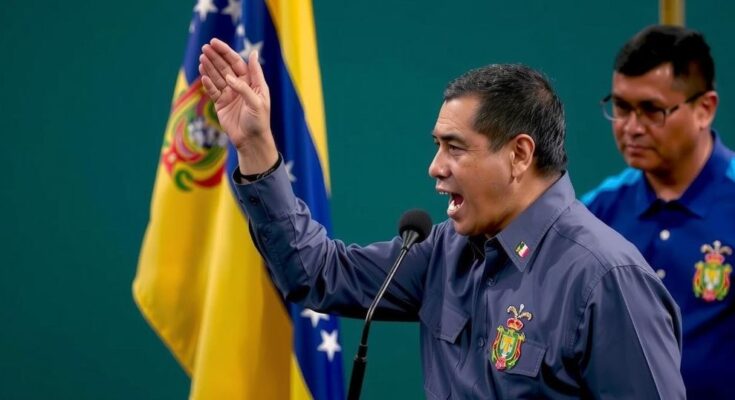Colombian President Gustavo Petro has criticized Venezuela’s July presidential election, labeling it a “mistake” amid allegations of electoral fraud and lack of transparency. His comments, made during a G20 summit in Brazil, reflect growing skepticism about the possibility of meaningful political change in Venezuela. This situation follows the claims of voter manipulation from both Maduro and opposition forces, exacerbating the tensions surrounding leadership legitimacy in the country.
Colombian President Gustavo Petro has publicly retracted his prior endorsement of the July presidential election in Venezuela, labeling the event as a “mistake.” In an interview with Brazilian news outlet Globo News, Petro expressed regret over his earlier position, highlighting that true democratic processes cannot exist amid external blockades. The president articulated his concerns during a visit to Brazil for the G20 summit, indicating a diminishing trust in diplomatic resolutions surrounding Venezuelan politics. He is skeptical about the possibility of a swift governmental transition in Venezuela. Petro’s remarks come in the context of significant electoral disputes following the July 28 elections, where both Maduro and his primary opponent claimed electoral victory. Despite their leftist alliances, efforts from Petro, Brazilian President Luiz Inácio Lula da Silva, and former Mexican President Andrés Manuel López Obrador to reconcile post-election tensions were ultimately futile. Vital to this controversy are the electoral tally sheets from voting machines that detail individual candidate votes—a transparency measure the Venezuelan electoral authorities have neglected to provide after alleging a website hack. This has allowed the opposition coalition to assert that their candidate, former diplomat Edmundo González, won against Maduro by a substantial margin, resulting in calls from Petro and others for the release of the electoral results. Petro also criticized the Maduro administration’s failure to present the vote records, which he believes creates confusion regarding the election outcomes. Meanwhile, with the commencement of Venezuela’s next presidential term set for January 10, the political landscape remains uncertain amid these ongoing disputes.
The political landscape in Venezuela has been turbulent, particularly during the controversial July presidential elections. President Nicolás Maduro’s administration faced claims of fraud and manipulation, while opposition figures rallied to contest the legitimacy of the election. The situation has drawn responses from various regional leaders, including President Gustavo Petro of Colombia, who initially supported the elections but has since expressed skepticism regarding their fairness. The dispute centers around the transparency of the voting process and the handling of electoral results, with vital concerns raised about external influence and the integrity of democratic processes in Venezuela.
In summary, President Gustavo Petro’s recent reversal of support for Venezuela’s July elections underscores a broader discontent with the electoral process under President Nicolás Maduro. The ongoing disputes regarding the legitimacy of the election results and the lack of transparency highlight a critical juncture in Venezuelan politics. With the next presidential term beginning soon, the implications of this political discord may resonate broadly within the region, affecting both diplomatic relations and democratic integrity.
Original Source: abcnews.go.com




